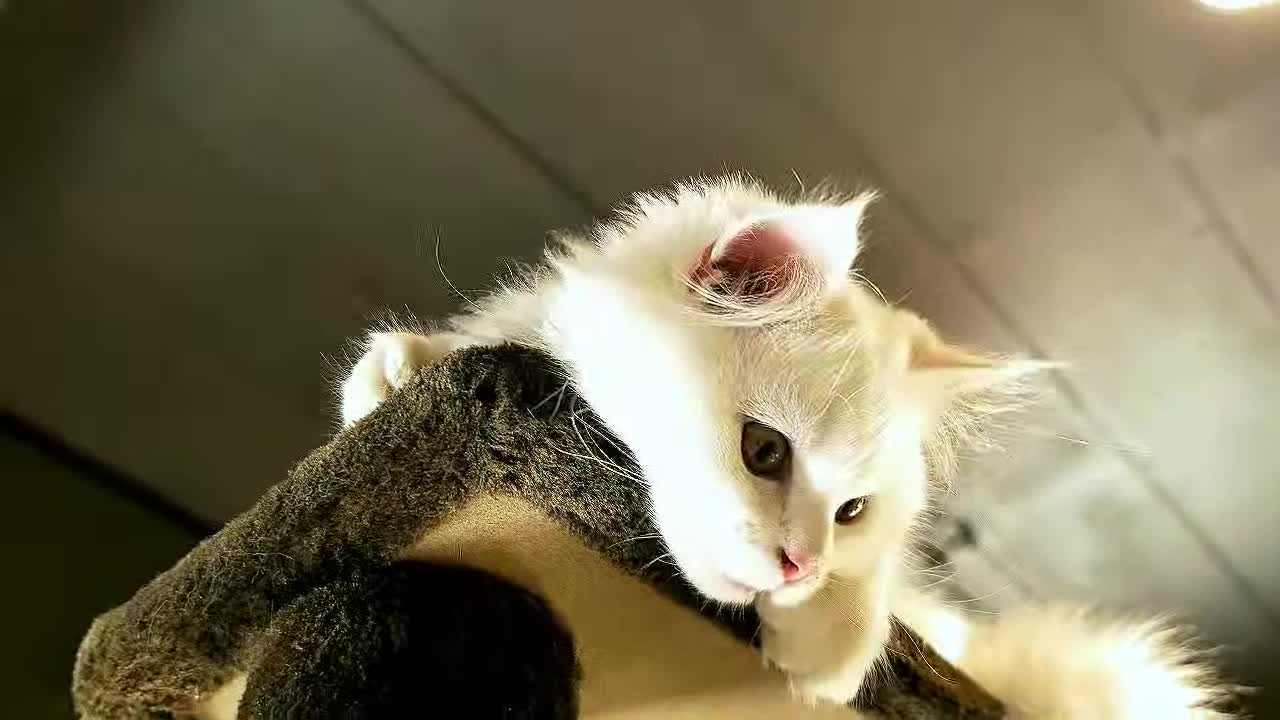Premium Only Content

Cat Sneezing Home Remedy
Is your cat sneezing so frequently that you feel like handing him a box of tissues? Your cat may be sneezing for any of many reasons. The culprit may be sinusitis, a cold, or allergy. While sinusitis or a cold usually clears up on its own, an allergy needs to be identified and resolved. Your feline friend could be allergic to any number of allergens, including cleaning products, grooming products, dust, or even outdoor pollen if your cat is an indoor or outdoor pet.
An occasional sneeze in a cat is normal and no real cause for alarm. Just as in humans, sneezing in cats is an explosive release of air through the nose and mouth, often the body’s response to irritants in the nasal passages. Sometimes, excitement or movement can bring on sneezing in cats.
However, if your cat’s sneezing won’t go away, or if other symptoms have cropped up along with sneezing, you may need to check with your veterinarian to see if treatment is needed.
Causes of Sneezing.
If your cat is sneezing a lot, your veterinarian may initially suspect a cause based on a review of your cat’s symptoms. One of the main causes of sneezing is infection. In some cases, the vet may take a swab from the mouth, throat, eyes, or nose and send it to a lab to confirm an infection. Inhaled irritants or allergens are other common causes of sneezing in cats.
Viral, bacterial, or fungal infections. If you’ve got a sneezing cat, chances are good the cat has an upper respiratory infection. Similar to colds in humans, these infections are more common in young cats, especially in those coming from animal shelters. Many of these infections can be prevented with early and complete vaccinations.
Viral infections that cause sneezing in cats.
Feline herpes virus.
Cats catch herpes from exposure to other cats who are infected. Stress can cause a flare-up as well as transmission to other cats. Treatment is aimed at controlling the symptoms. Feline herpes virus is NOT contagious to humans.
Feline calicivirus.
This virus is highly contagious among cats. Mouth ulcers are the most common problem, but it can affect the respiratory tract and even cause pneumonia. These infections may make your cat more likely to develop other respiratory problems that can exacerbate sneezing. For example, a cat with herpes may also develop a secondary bacterial infection. These are often treatable with antibiotics.
A wide range of other infections may also lead to sneezing.
Feline infectious peritonitis. which may cause no symptoms, mild symptoms, or more severe symptoms over time.
Feline Immunodeficiency Virus, which develops slowly, but severely impacts a cat’s immune system, leaving the cat vulnerable to other infections.
Feline leukemia, a serious and often fatal infection.
Chlamydia, which often produces an eye infection.
Bordetella.
Mycoplasma.
Inhaled irritants or allergens. If your cat only sneezes once in a while, something may simply be irritating the nasal passages. Look for patterns in your cat’s sneezing. Does it occur after you’ve lit the candles at the dinner table? After your cat leaves the litter box? After you’ve cleaned the house?
These are all examples of potential irritants or allergens.
Cigarette smoke,
Perfume,
Pest sprays,
Cat litter, especially types that create dust,
Cleaning agents,
Candles,
Dust,
Pollen,
Mold,
In cats, allergies are a less common cause of sneezing than in humans. If sneezing is related to allergies, sometimes itchy skin is also present.
Other potential causes of sneezing.
A variety of other factors may contribute to sneezing in cats. For example, it’s common for cats to experience sneezing within four to seven days of receiving an intranasal vaccine. This sneezing lasts for no more than several days. Cats may also sneeze to try to dislodge a blockage in their nasal passages. An infection or inflammation of a tooth root may cause drainage into the sinuses and may also cause sneezing. In very rare cases, sneezing in cats can be a sign of cancer.
-
 8:19
8:19
MattMorseTV
10 hours ago $4.94 earnedTrump is ACTUALLY DOING IT.
36.5K37 -
 11:30:43
11:30:43
ZWOGs
13 hours ago🔴LIVE IN 1440p! - Tarkov w/ Casey & crgoodw1n, Kingdom Come Deliverance, & More - Come Hang Out!
32.2K5 -
 2:30:56
2:30:56
We Like Shooting
17 hours ago $2.71 earnedWe Like Shooting 625 (Gun Podcast)
28K1 -
 1:45:02
1:45:02
Glenn Greenwald
8 hours agoIsrael Slaughters More Journalists, Hiding War Crimes; Trump's Unconstitutional Flag Burning Ban; Glenn Takes Your Questions | SYSTEM UPDATE #504
132K172 -
 1:29:31
1:29:31
Killerperk
5 hours ago $0.78 earnedRoad to BF6. Come hang out #regiment #bf6
30.2K2 -
 4:35:45
4:35:45
Jokeuhl Gaming and Chat
6 hours agoDARKTIDE - Warhammer 40k w/ Nubes Bloobs and AoA
20.9K2 -
 LIVE
LIVE
Cripiechuccles
6 hours ago😁💚💙MOTA MONDAY WITH CRIPIE💚💙 👌SMOKING, GAMING & WATCHING FLICKS!:😁
39 watching -
 36:11
36:11
Stephen Gardner
5 hours ago🔥'Burn ALL TRUMP FLAGS’ says Tim Walz + Democrat CAUGHT rigging own election!
25K16 -
 10:10
10:10
robbijan
1 day agoHollywood’s Hidden Messages: Predictive Programming & What’s Next
18.3K19 -
 40:13
40:13
MattMorseTV
7 hours ago $6.79 earned🔴It's EVEN WORSE than we thought...🔴
32.5K86